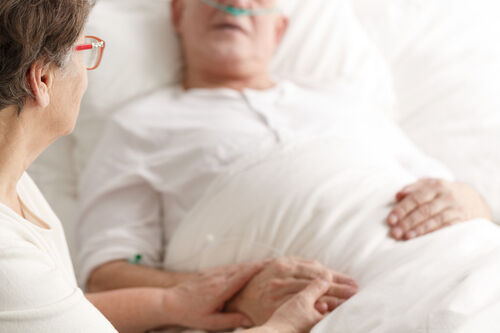Assisted Suicide
Assisted suicide bill branded unsafe by disability and human rights experts

Week two of the House of Lords Select Committee hearings on the Assisted Suicide Bill has drawn strong warnings from medical, legal, and disability advocates who say the legislation poses serious risks to vulnerable people and lacks effective safeguards.
Impact on disability rights
Paralympian and disability rights campaigner Baroness Tanni Grey-Thompson delivered one of the most powerful interventions, calling the Bill “a danger to disabled people.”
She highlighted fears from parents of adults with Down’s syndrome about what will happen to their children after they die.
The Bill’s six-month prognosis safeguard, she said, was “arbitrary” and a “best guess” that would not protect disabled people. “No disability organisation supports this Bill,” she told the committee.
Ken Ross, of the National Down Syndrome Policy Group, described “a real fear” among people with Down’s syndrome. He pointed to the risk of eligibility panels becoming “rubber stamps,” comparing them to the failures of the Gosport hospital scandal, where hundreds died due to inappropriate opioid use.
Impact on mental health and domestic abuse
Medical professionals and mental health leaders also voiced serious concerns.
Dr Sarah Hughes, Chief Executive of Mind, stated clearly that the mental health charity “cannot support the Bill in its current form.”
She warned that jurisdictions which have legalised assisted suicide have seen rapid expansion and that assessments via video call are completely inadequate.
Cherryl Henry-Leach, CEO of Standing Together Against Domestic Abuse, added: “It will be very difficult to deliver assisted dying safely,” citing the difficulty of detecting coercion, especially when abuse victims deny they are being pressured.
Serious legal and ethical concerns
Legal and ethical concerns were also front and centre. Alasdair Henderson KC, a commissioner at the Equality and Human Rights Commission, said that while the initial criteria for assisted suicide may appear reasonable, human rights law could quickly lead to expanded eligibility. He warned, “If you have any doubts that those safeguards will work, then you should vote against.”
Baroness Scotland cited Canada’s experience, where the expansion of assisted suicide laws is reportedly eroding the rights of disabled people. When asked if the current Bill was safe, every expert either said “no” or shook their head.
Despite government support, evidence from across the medical, disability, and human rights sectors has revealed deep flaws in the Assisted Suicide Bill. Those most at risk have made their message clear: the Bill is unsafe, unworkable, and puts vulnerable lives in danger.
Share
